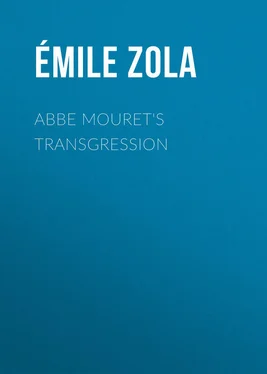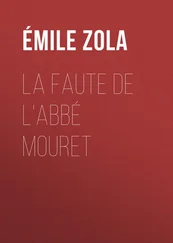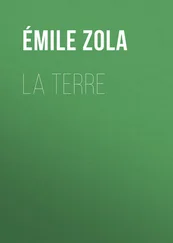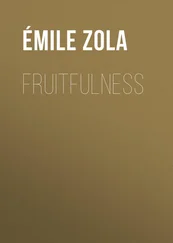Émile Zola - Abbe Mouret's Transgression
Здесь есть возможность читать онлайн «Émile Zola - Abbe Mouret's Transgression» — ознакомительный отрывок электронной книги совершенно бесплатно, а после прочтения отрывка купить полную версию. В некоторых случаях можно слушать аудио, скачать через торрент в формате fb2 и присутствует краткое содержание. Жанр: literature_19, foreign_antique, foreign_prose, на английском языке. Описание произведения, (предисловие) а так же отзывы посетителей доступны на портале библиотеки ЛибКат.
- Название:Abbe Mouret's Transgression
- Автор:
- Жанр:
- Год:неизвестен
- ISBN:нет данных
- Рейтинг книги:5 / 5. Голосов: 1
-
Избранное:Добавить в избранное
- Отзывы:
-
Ваша оценка:
- 100
- 1
- 2
- 3
- 4
- 5
Abbe Mouret's Transgression: краткое содержание, описание и аннотация
Предлагаем к чтению аннотацию, описание, краткое содержание или предисловие (зависит от того, что написал сам автор книги «Abbe Mouret's Transgression»). Если вы не нашли необходимую информацию о книге — напишите в комментариях, мы постараемся отыскать её.
Abbe Mouret's Transgression — читать онлайн ознакомительный отрывок
Ниже представлен текст книги, разбитый по страницам. Система сохранения места последней прочитанной страницы, позволяет с удобством читать онлайн бесплатно книгу «Abbe Mouret's Transgression», без необходимости каждый раз заново искать на чём Вы остановились. Поставьте закладку, и сможете в любой момент перейти на страницу, на которой закончили чтение.
Интервал:
Закладка:
‘Where have you been, Monsieur le Cure?’
‘Well,’ he answered with a smile, ‘I have seen the Brichets, I have spoken to Bambousse.’
Thereupon he had to relate to her what the Brichets had said, what Bambousse had decided, and how they looked, and where they were at work. When he repeated to her the answer of Rosalie’s father, ‘Of course!’ she exclaimed, ‘if the child should die her mishap would go for nothing.’ And clasping her hands with a look of envious admiration she added, ‘How you must have chattered, your reverence! More than half the day spent to obtain such a fine result! You took it easy coming home? It must have been very hot on the road?’
The Abbe, who by this time had risen, made no answer. He had been on the point of speaking about the Paradou, and asking for some information concerning it. But a fear of being flooded with eager questions, and a kind of vague unavowed shame, made him keep silence respecting his visit to Jeanbernat. He cut all further questions short by asking:
‘Where is my sister? I don’t hear her.’
‘Come along, sir,’ said La Teuse, beginning to laugh, and raising her finger to her lips.
They went into the next room, a country drawing-room, hung with faded wall-paper showing large grey flowers, and furnished with four armchairs and a sofa, covered with horse-hair. On the sofa now slept Desiree, stretched out at full length, with her head resting on her clenched hands. The pronounced curve of her bosom was raised somewhat by her upstretched arms, bare to the elbows. She was breathing somewhat heavily, her red lips parted, and thus showing her teeth.
‘Lord! isn’t she sleeping sound!’ whispered La Teuse. ‘She didn’t even hear you pitching into me just now. Well, she must be precious tired. Just fancy, she was cleaning up her yard till nearly noon. And when she had eaten something, she came and dropped down there like a shot. She has not stirred since.’
For a moment the priest gazed lovingly at her. ‘We must let her have as much rest as she wants,’ he said.
‘Of course. Isn’t it a pity she’s such an innocent? Just look at those big arms! Whenever I dress her I always think what a fine woman she would have made. Ay, she would have brought you some splendid nephews, sir. Don’t you think she is like that stone lady in Plassans corn-market?’
She spoke thus of a Cybele stretched upon sheaves of wheat, the work of one of Puget’s pupils, which was carved on the frontal of the market building. Without replying, however, Abbe Mouret gently pushed her out of the room, and begged her to make as little noise as possible. Till evening, therefore, perfect silence settled on the parsonage. La Teuse finished her washing in the shed. The priest, seated at the bottom of the little garden, his breviary fallen on his lap, remained absorbed in pious thoughts, while all around him rosy petals rained from the blossoming peach-trees.
XI
About six o’clock there came a sudden wakening. A noise of doors opening and closing, accompanied by bursts of laughter, shook the whole house. Desiree appeared, her hair all down and her arms still half bare.
‘Serge! Serge!’ she called.
And catching sight of her brother in the garden, she ran up to him and sat down for a minute on the ground at his feet, begging him to follow her:
‘Do come and see the animals! You haven’t seen the animals yet, have you? If you only knew how beautiful they are now!’
She had to beg very hard, for the yard rather scared him. But when he saw tears in Desiree’s eyes, he yielded. She threw herself on his neck in a sudden puppy-like burst of glee, laughing more than ever, without attempting to dry her cheeks.
‘Oh! how nice you are!’ she stammered, as she dragged him off. ‘You shall see the hens, the rabbits, the pigeons, and my ducks which have got fresh water, and my goat, whose room is as clean as mine now. I have three geese and two turkeys, you know. Come quick. You shall see all.’
Desiree was then twenty-two years old. Reared in the country by her nurse, a peasant woman of Saint-Eutrope, she had grown up anyhow. Her brain void of all serious thoughts, she had thriven on the fat soil and open air of the country, developing physically but never mentally, growing into a lovely animal – white, with rosy blood and firm skin. She was not unlike a high-bred donkey endowed with the power of laughter. Although she dabbled about from morning till night, her delicate hands and feet, the supple outlines of her hips, the bourgeois refinement of her maiden form remained unimpaired; so that she was in truth a creature apart – neither lady nor peasant – but a girl nourished by the soil, with the broad shoulders and narrow brow of a youthful goddess.
Doubtless it was by reason of her weak intellect that she was drawn towards animals. She was never happy save with them; she understood their language far better than that of mankind, and looked after them with motherly affection. Her reasoning powers were deficient, but in lieu thereof she had an instinct which put her on a footing of intelligence with them. At their very first cry of pain she knew what ailed them; she would choose dainties upon which they would pounce greedily. A single gesture from her quelled their squabbles. She seemed to know their good or their evil character at a glance; and related such long tales about the tiniest chick, with such an abundance and minuteness of detail, as to astound those to whom one chicken was exactly like any other. Her farmyard had thus become a country, as it were, over which she reigned; a country complex in its organisation, disturbed by rebellions, peopled by the most diverse creatures whose records were known to her alone. So accurate was her instinct that she detected the unfertile eggs in a sitting, and foretold the number of a litter of rabbits.
When, at sixteen, Desiree became a young woman, she retained all her wonted health; and rapidly developed, with round, free-swaying bust, broad hips like those of an antique statue, the full growth indeed of a vigorous animal. One might have thought that she had sprung from the rich soil of her poultry-yard, that she absorbed the sap with her sturdy legs, which were as firm as young trees. And nought disturbed her amidst all this plenitude. She found continuous satisfaction in being surrounded by birds and animals which ever increased and multiplied, their fruitfulness filling her with delight. Nothing could have been healthier. She innocently feasted on the odour and warmth of life, knowing no depraved curiosity, but retaining all the tranquillity of a beautiful animal, simply happy at seeing her little world thus multiply, feeling as if she thereby became a mother, the common natural mother of one and all.
Since she had been living at Les Artaud, she had spent her days in complete beatitude. At last she was satisfying the dream of her life, the only desire which had worried her amidst her weak-minded puerility. She had a poultry-yard, a nook all to herself, where she could breed animals to her heart’s content. And she almost lived there, building rabbit-hutches with her own hands, digging out a pond for the ducks, knocking in nails, fetching straw, allowing no one to assist her. All that La Teuse had to do was to wash her afterwards. The poultry-yard was situated behind the cemetery; and Desiree often had to jump the wall, and run hither and thither among the graves after some fowl whom curiosity had led astray. Right at the end was a shed giving accommodation to the fowls and the rabbits; to the right was a little stable for the goat. Moreover, all the animals lived together; the rabbits ran about with the fowls, the nanny-goat would take a footbath in the midst of the ducks; the geese, the turkeys, the guinea-fowls, and the pigeons all fraternised in the company of three cats. Whenever Desiree appeared at the wooden fence which prevented her charges from making their way into the church, a deafening uproar greeted her.
Читать дальшеИнтервал:
Закладка:
Похожие книги на «Abbe Mouret's Transgression»
Представляем Вашему вниманию похожие книги на «Abbe Mouret's Transgression» списком для выбора. Мы отобрали схожую по названию и смыслу литературу в надежде предоставить читателям больше вариантов отыскать новые, интересные, ещё непрочитанные произведения.
Обсуждение, отзывы о книге «Abbe Mouret's Transgression» и просто собственные мнения читателей. Оставьте ваши комментарии, напишите, что Вы думаете о произведении, его смысле или главных героях. Укажите что конкретно понравилось, а что нет, и почему Вы так считаете.












